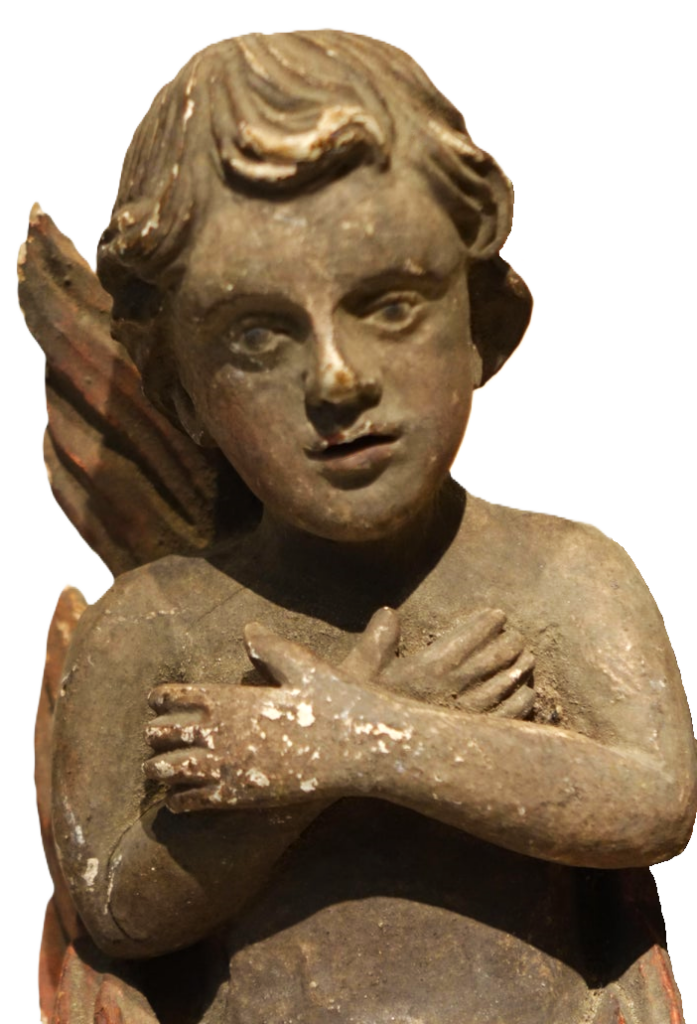TREATISE ON PURGATORY by St. Catherine of Genoa
CHAPTER V

THE PEACE AND JOY OF PURGATORY.
The souls in Purgatory having their wills perfectly conformed to the will of God, and hence partaking of His goodness, remain satisfied with their condition, which is one of entire freedom from the guilt of sin. For when they passed out of this life, penitent, with all their sins confessed and resolved to sin no more, God straightway pardoned them; and now they are as pure as when they were created; the rust of sin alone is left, and this they get rid of by the punishment of fire. Cleansed thus from all sin, and united in will to God, they see God clearly according to the degree of light He imparts to them; they are conscious too what a thing it is for them to enjoy God, that for this very end souls were created. Again, there is in them a conformity of will so uniting them to God, so drawing them to Him through that natural instinct whereby God is, as it were, bound up with the soul, that no description, no figure, no example can give a clear idea of it as it is actually felt and apprehended by inward consciousness; nevertheless I will mention something like it which suggests itself to me.
Reflection:
At death, the will becomes fixed. The human person is a composite of soul and body; we are not just our bodies, we are not just our souls (gnostic ghosts in the machine), but rather both. Our souls are not intended to be separated from our bodies, yet they are as punishment for sin. Only God is life. Nothing can maintain its existence by itself for its existence is sustained constantly and consistently by God. Sin is the attempt of a creature to turn away from life, from existence, from God. It is to attempt the impossible and be self-sufficient, a closed-loop, to be god. What we experience as human life is the slow entropy of the separation of body and soul; of returning to dust. It is the ramifications of the attempt to step outside of that life-giving stream, by our first parents, by ourselves. Without God, there is nothing; there can be nothing. Sin is the attempt to be that which cannot be; the ulitimate calamity.
Yet God did not create us in vain, but rather He created us for Himself. So, at the point of dissolution and dissociation, He brings our souls to Himself, before His throne. Without our bodies, our souls are without their fractured scenes. God supplies, and the soul sees God face to Face, without intermediary senses. In seeing God face to Face, without an intermediary, the soul knows Him, and the will, in seeing perfect goodness, can forever now never will other than the choice that is before it; to accept the divine pronouncement of judgment or to reject it. How could the will ever chance from thereon out? It has received fully, without intermediary, the knowledge of who God is and what His particular will is for the individual. No additional knowledge is possible, no further information is forthcoming, nothing further might move the will in a different direction.
The will is now configured perfectly; conformed to His will or against it.
What exactly is it that the soul sees? It sees firstly that God is God and one is not, that God has created one’s soul to be wed to Him, that Christ is the Bridegroom, that the Spirit is to dwell eternally in the soul, and that one is to eternally contemplate and glorify the Father, with the Son, through the Spirit. The soul sees its particular failure to cooperate with this end during its early life. Then the soul either wills humbly to accept the sentence of God’s mercy – an act that has been predicated upon her earthly pre-configuration to God’s will through living of the life of grace and adornment with the virtues – or the soul wills eternally to pridefully reject her judgment and receives at His hand the result of this rejection – eternal separation from God.
Contemplation
Question: A soul in Purgatory has abiding peace because she has seen her end, and unending joy because she will obtain her end. On earth, we do not have these because God is yet veiled to our souls. We are unsatisfied with our condition and are often filled with anxiety over our readiness to see God. How does the practice of the theological virtues of faith, hope, and charity resolve this anxiety?
Question: The eye only sees according to the degree of light given to it. In this life, the soul can only “see” God according to the degree of the light of faith given to it. We must, at least, will for the will to receive this faith. This is not passive, for to will something is to act, even if but receptively. What are acts of faith that we might more willfully undertake in order to receive more of the light of faith and thus grow more in faith?
~PPP
